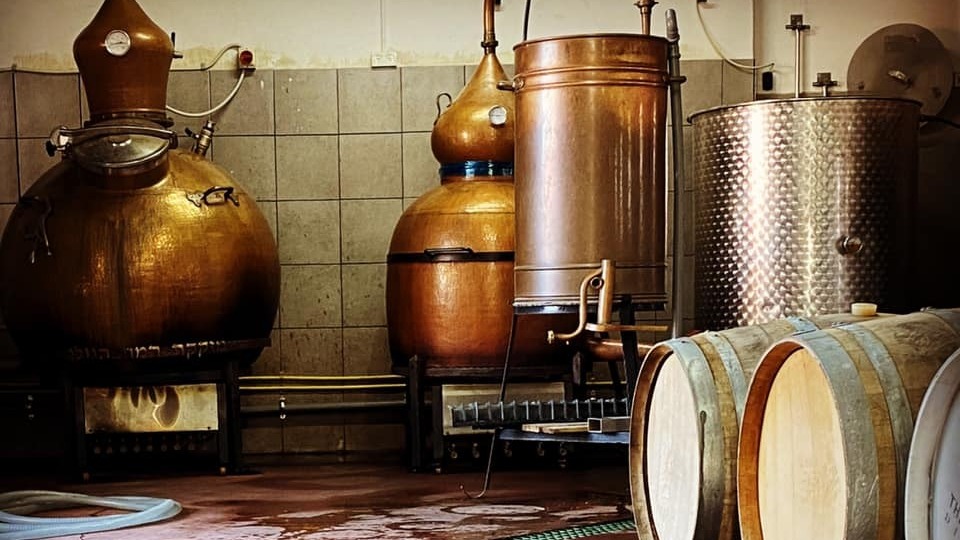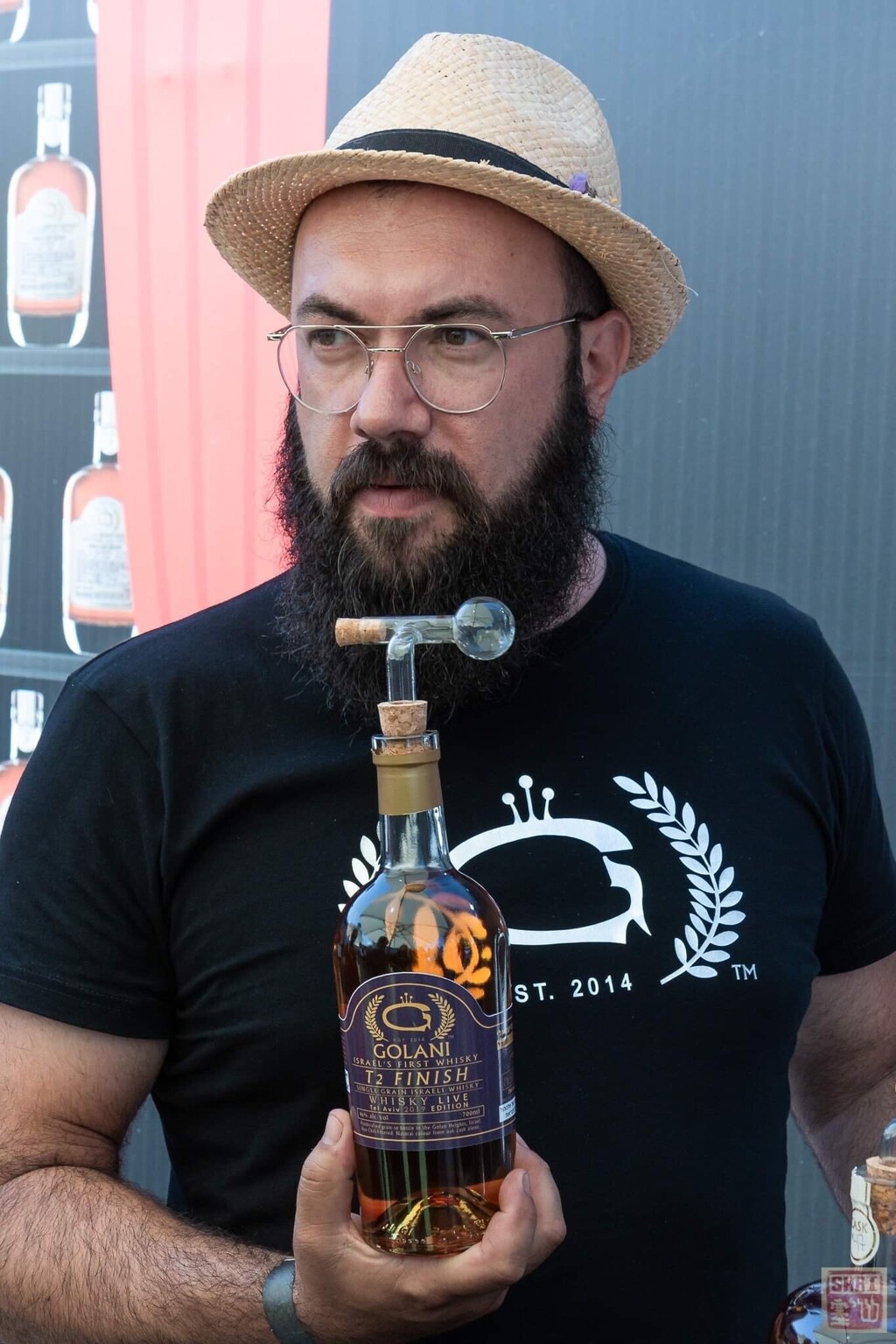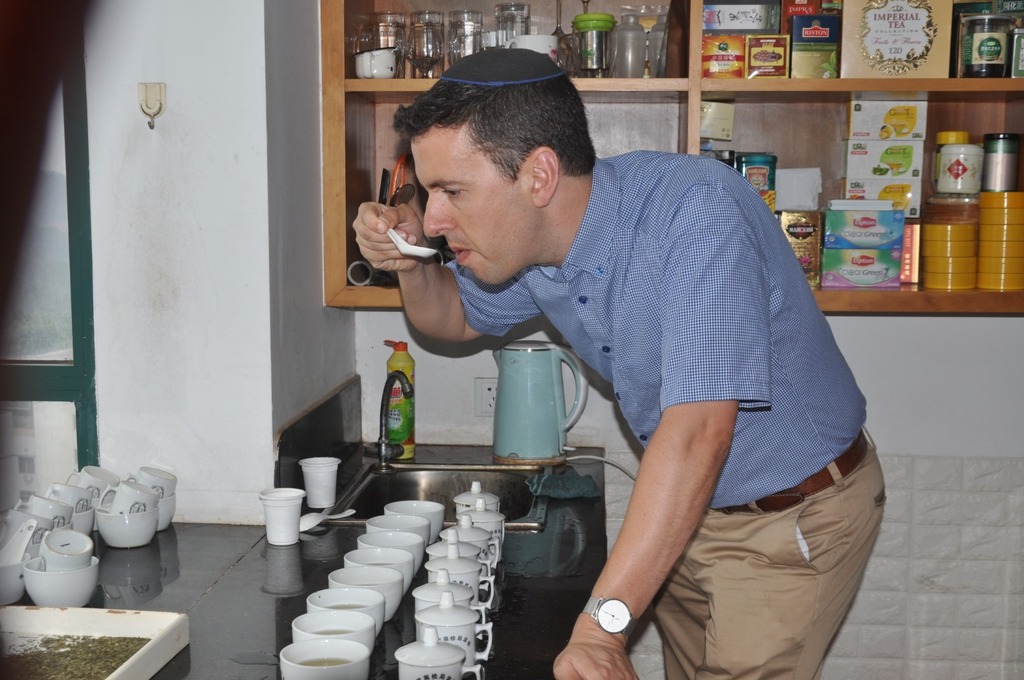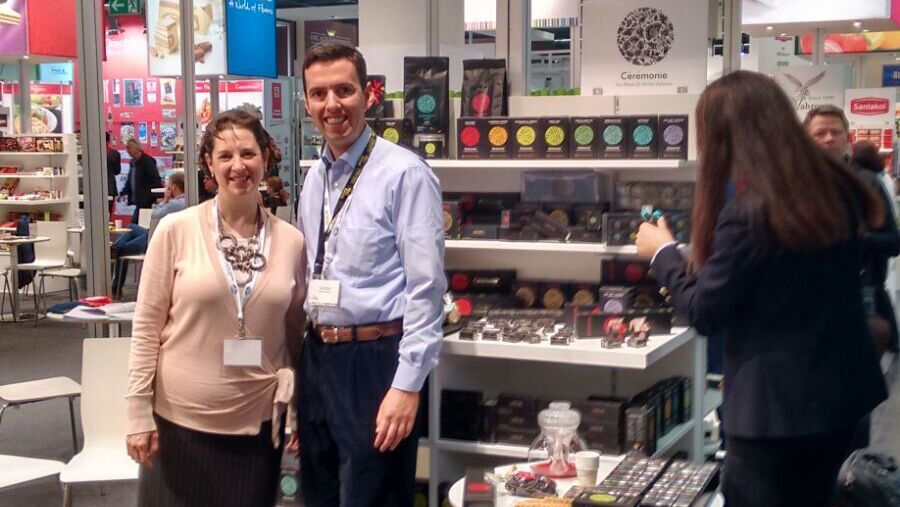Getting your Trinity Audio player ready...
In partnership with Nefesh B’Nefesh
nefesh b'nefesh Whisky
(צילום: ניצן דרור)
They lived comfortable lives in the United States and Canada, decided to leave it all behind, fulfill their Zionist dreams and immigrate to Israel. But they were not satisfied with all that, and after immigrating, they made a 180-degree turn in their careers: Meet the new immigrants, who, following their Aliyah, set up successful local ‘blue-and-white’ based culinary business.
9 View gallery
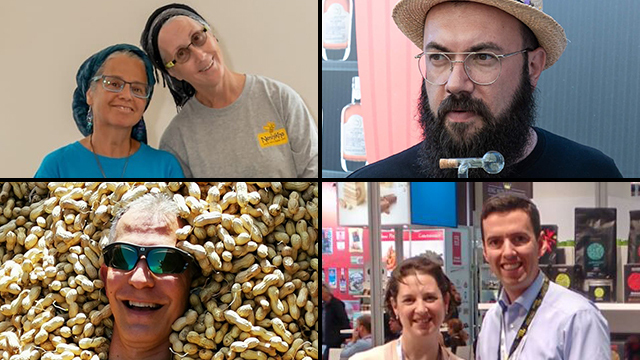

Clockwise from top left: Miri Newcome and Chaya Ben Baruch, David Zibell, Elli and Efrat Schorr and Jason Cohen
(Photos: Courtesy, davidbrianbender.com and Shai Gilboa)
The love of whisky that became a business
David Zibell (41), founder and chief distiller of the Golani Distillery in Katzrin, also admires the spirit of Israeli support and assistance. Zibell immigrated to Israel from Montreal, Canada, seven years ago with his wife Alona and their six children as part of the "Go Beyond" program, which Nefesh B'Nefesh runs together with Keren Kayemeth LeIsrael (KKL).
The "Go Beyond" program enabled Zibell to realize the dream of turning his whisky hobby into a business. "In Canada, I dabbled in real estate, but I was a serious whisky lover. I learned about the whisky-making process, and saw my Aliyah as also the start of a business opportunity.”
Creating a business as a new immigrant was not simple, Zibell testifies, but thanks to the assistance of the staff at Nefesh B’Nefesh he was in close contact with even prior to his Aliyah, he managed to make a dream into reality.
"We are Zionist Jews who wanted to live here. When you live abroad and life is comfortable, it's kind of hard to get out of your comfort zone and familiar routines. Of course, we were afraid, we didn't know how we would make money and where we would live, but we made the decision to be Jewish in our homeland."
The Zibell family immigrated to Israel in July of 2014, and the container with the refining equipment they had purchased arrived in August, "and by September 1, 2014, I had begun to distill. After the first batch was produced, I realized this was my passion and I left everything else to pursue it."
Zibell received additional and significant support from the Israeli public.
"I heard about crowdfunding, and realized it could be a good way to finance the start of the business. We started the project and a lot of people supported us, pre-purchased bottles, and gave positive feedback. It was incredible. What's fun about the Israeli audience is that they are new to whisky. They are open to all kinds of things, and have great enthusiasm for new tastes."
Today Golani is a boutique distillery, which produces single malt whisky, whisky flavored liqueurs, brandy, gin, absinthe and even arak. The aging of whisky is done using a special method of scorching the wooden barrels, which gives unique flavors to the drink.
"KKL, which is celebrating 120 years since its founding, has been working for many years, together with Nefesh B'Nefesh, on a national project to encourage the settlement of new immigrants in the Galilee, the Golan Heights, the Negev and Jerusalem. These immigrants empower the State of Israel and contribute greatly to its success," says Ronnie Vinnikov, CDO of KKL-JNF.
“It is of great importance to support the small and medium-sized Israeli businesses of new immigrants, especially during this challenging period."
Where do you see the business in 10 years?
'We don't want to grow too big, it's important for us to stay boutique - so we can produce special products and really take care of each and every barrel we produce. But it is important for us to break into the market outside of Israel and put Israel on the global whisky map."
What would you like to wish to Israel for Independence Day?
“What I want to wish the country for Independence Day, first of all that we should have peace among ourselves, that we should be an example to the world, not just in coronavirus vaccines, in everything we do.”
From failing tea factory to gourmet tea success
"When I immigrated to Israel with Nefesh B'Nefesh, I knew I wanted to start a business. I started networking, and I saw that everyone was going into high-tech, but I didn't feel connected with that field," says Elli Schorr, who until 8 years ago worked as lawyer and is now CEO of the Ceremonie Tea Company.
"I thought of the less obvious sectors, and that's how I got into the world of food. I thought it would be fascinating to develop something in the field. I loved the idea of tea, because it meets at the crossroads of two trends: bettering our health and the return to nature".
In 2013, Elli and his wife, Efrat, both born in Pennsylvania, USA, who immigrated to Israel in 2006, purchased The Ceremonie Tea Company, which was in debt and on the verge of closing. "We were nervous about the move, but we knew we had a chance to do something," Schorr says.
Ceremonie, which specializes in producing premium tea mainly for the business sector, has grown and developed over the years. The Schorrs set up a factory in Migdal HaEmek, where the blends and flavors are produced.
The company also produces unique products such as tea bags made of silk, "which allow you to put whole leaves and spices in it."
Recently, the company has also begun to develop biodegradable tea bags, at the request of environmentally friendly customers.
Unfortunately, the Corona pandemic cut sales by 90 percent, Schorr testifies.
"But we started selling the products to the private market through our website, and sales to private customers exceeded our expectations. We also began marketing to food chains, which were less affected by the pandemic."
What have you learned about Israelis’ taste since you entered the tea business?
"Israeli tastes have changed a lot over the years. Until recently, tea was seen as a drink only for the sick and the elderly. Thanks to immigration from the Soviet Union and young people who have traveled to Asia for their post-military trip, tea is now perceived somewhat as gourmet. The best-selling flavor in Israel is the Verbena-Lime, which is less popular in other countries. In my opinion, it comes from the mint tea culture here in Israel."
9 View gallery
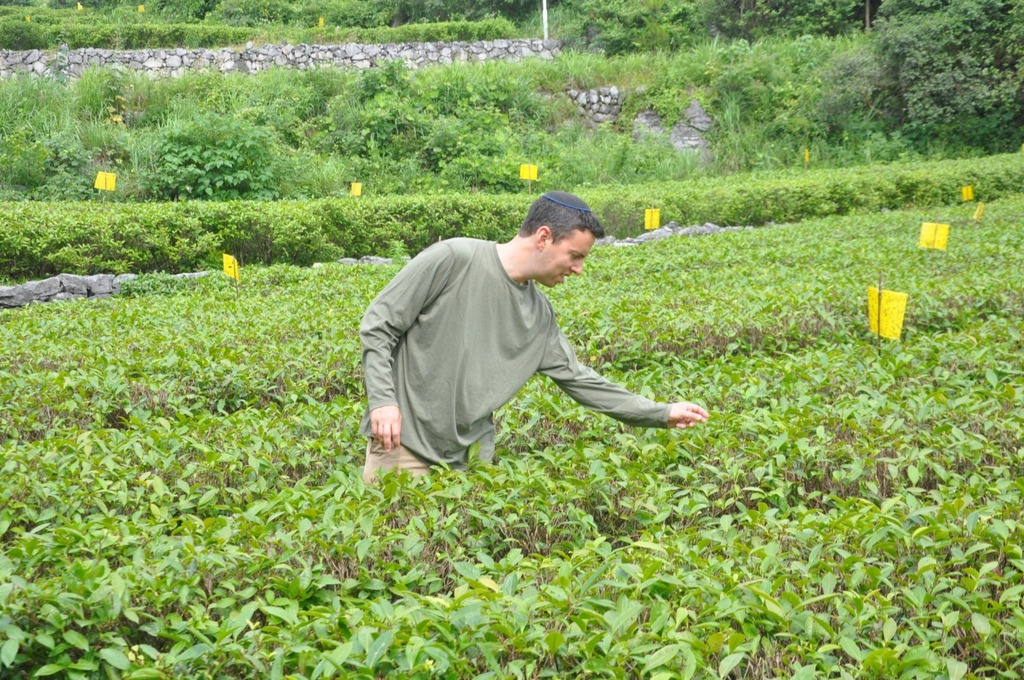

Elli Schorr: The best-selling tea flavor in Israel is the Verbena-Lime
(Photo: Courtesy)
About bees and people
One of the first things Miri Newcome did when she immigrated to Israel from Pennsylvania nine years ago was to start collecting plants and flowers. Newcome, a beekeeper by profession, immigrated with two out of her five children and immediately felt a deep connection to the earth and nature.
"I reached a point in my life when I was tired of fighting for my Judaism,” she says about her decision to immigrate to Israel.
“Making the holidays in the United States was a challenge. I thought in Israel I would find myself more at home".
Newcome settled in Tzfat, and a few months later, she met Chaya Ben Baruch, an old immigrant who came there from Alaska in 1995 with her children two of whom had Down's syndrome. She later adopted other children with Down’s syndrome – two of whom fell in love and got married.
9 View gallery
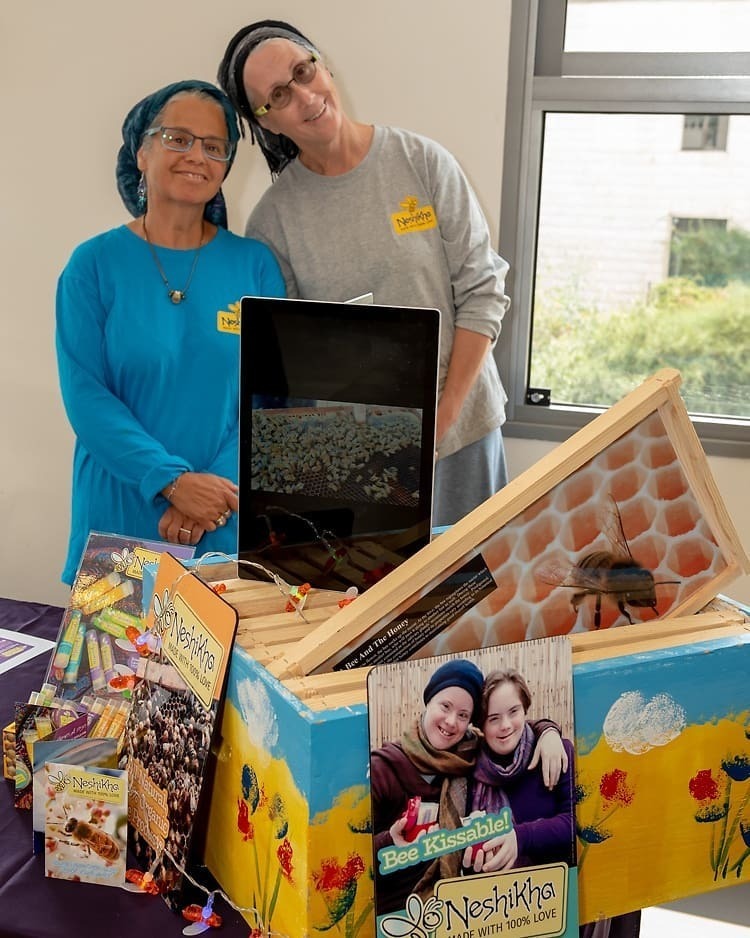

Chaya Ben Baruch, left, and Miri Newcome with a sample of their products
(Photo: davidbrianbender.com)
"Living in Israel made life easier for my children," says Ben Baruch. "A lot of parents of special needs children are afraid of immigration because of language difficulties, but our children are bilingual – and have acclimated like everyone else. Not to mention the excellent healthcare system here in Israel."
The friendship between Newcome and Ben Baruch grew, the two shared their dreams and aspirations – Miri a fan of environment and bees, and Chaya, looking for meaningful employment for her children.
"Until Miri arrived, I really struggled to integrate my children into good programs," says Ben Baruch.
The two decided to work together and produce natural moisturizing lipstick from beeswax.
"We started working out of Miri’s kitchen, we tried 23 formulas until we got the right one."
nefesh b'nefesh Neshikha
(צילום: ניצן דרור)
The initial idea was to produce just one product, but soon they expanded under their brand, Neshikha (Hebrew for kiss) to raw honey, natural care products, beeswax candles and more recently wax covers, which replace the need for plastic bags. In addition, the production of their various products, they also hold workshops and activities for children.
Newcome and Ben Baruch say their business is run with inspiration from the bees.
"Honeybees work together. People tend to think the queen is the leader, but that's really not true. Our business decisions are also collective. Besides, you can learn a lot from the bees, because they take care of each other from the moment an egg hatches in the hive. There is a lot of love between the bees. In the same way, children with Down’s syndrome communicate without words and with a lot of love."
9 View gallery
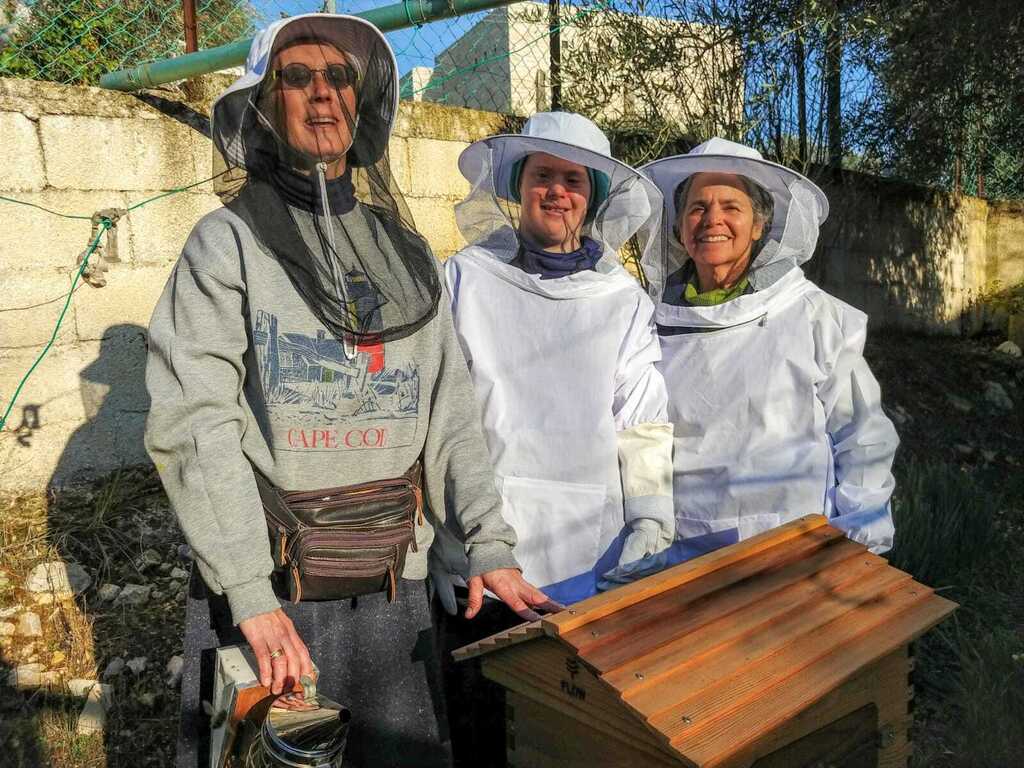

L-R: Miri Newcome, Keren Ben Baruch and Chaya Ben Baruch
(Photo: davidbrianbender.com)
'If there's no peanut butter, we'll make it'
Jason and Donna Cohen's business was born from a combination of their love of peanut butter and the Coronavirus limitations, which made it impossible for them to take their frequent trips to the US and bring back the organic American brand of peanut butter, they love.
"It was the first things that bothered us when the world went into lockdown," they laugh.
They immigrated to Israel ten years ago from New Jersey, with the assistance of Nefesh B'Nefesh, in cooperation with the Ministry of Aliyah and Integration, the Jewish Agency, Keren Kayemeth LeIsrael and JNF-USA.
Jason, 46, is an anesthesiologist who specializes in pain relief, and Donna, 44, is a social worker. Jason continued to run his clinic in the United States for five years and then began working as a consultant, and over the years was constantly traveling between Israel and the U.S. Then came the pandemic, and the skies closed.
9 View gallery
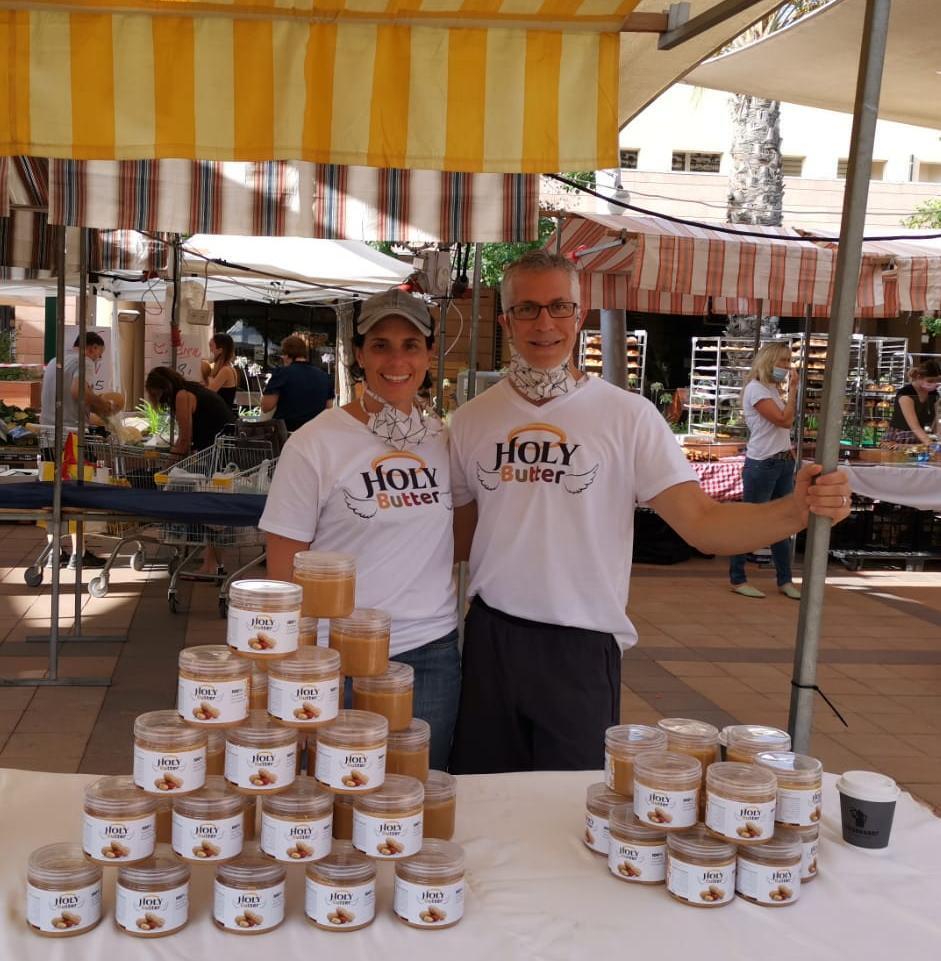

Jason and Donna Cohen's business was born from a love of peanut butter and the coronavirus lockdown
(Photo: Courtesy)
The ample free time and lack of peanut butter, their family's favorite food, led Jason on a journey across the length and breadth of Israel in the search for peanuts.
"I discovered that more than 90% of the peanuts sold in Israel are imported from China, and their nutritional level is very low. I also discovered that most of the peanut butter products sold in Israel are made from peanut powder”.
A video of a Texan farmer, who spoke about an exotic Israeli variety of peanuts, sent Cohen on a trip to the Western Negev, where he found the species - Hanoch. From there, the road to opening the business was quick.
The Cohens ordered a professional peanut grinding machine from abroad, and learned how to operate it.
"Our first intention was to make it ourselves at home" - but word of the peanut butter produced by the couple in the warehouse of their home in the Anglo-Saxon community of Modiin went viral, and soon made its way to the ears of Israelis as well, “and they went crazy for it”.
He continued to recall that “People who hadn't eaten peanut butter beforehand fell in love with the taste. It is important to understand that peanut butter in its natural form, without all the additives [of fats and sugars], is the healthiest thing there is".
In July, they began marketing their first jars of peanut butter under the name “Holy Butter”.
Later on, they began to produce almond butter, and last October, due to high demand, they moved their operations to the Lin Farm factory, which allowed them to use their equipment.
What have you learned about Israelis in the past year following the establishment of the business?
"We found that Israelis have a passion for life and love for good things. They have a large awareness regarding health and nutrition. Some of our customers said they wanted to support us because we are doing something good".
In partnership with Nefesh B’Nefesh





